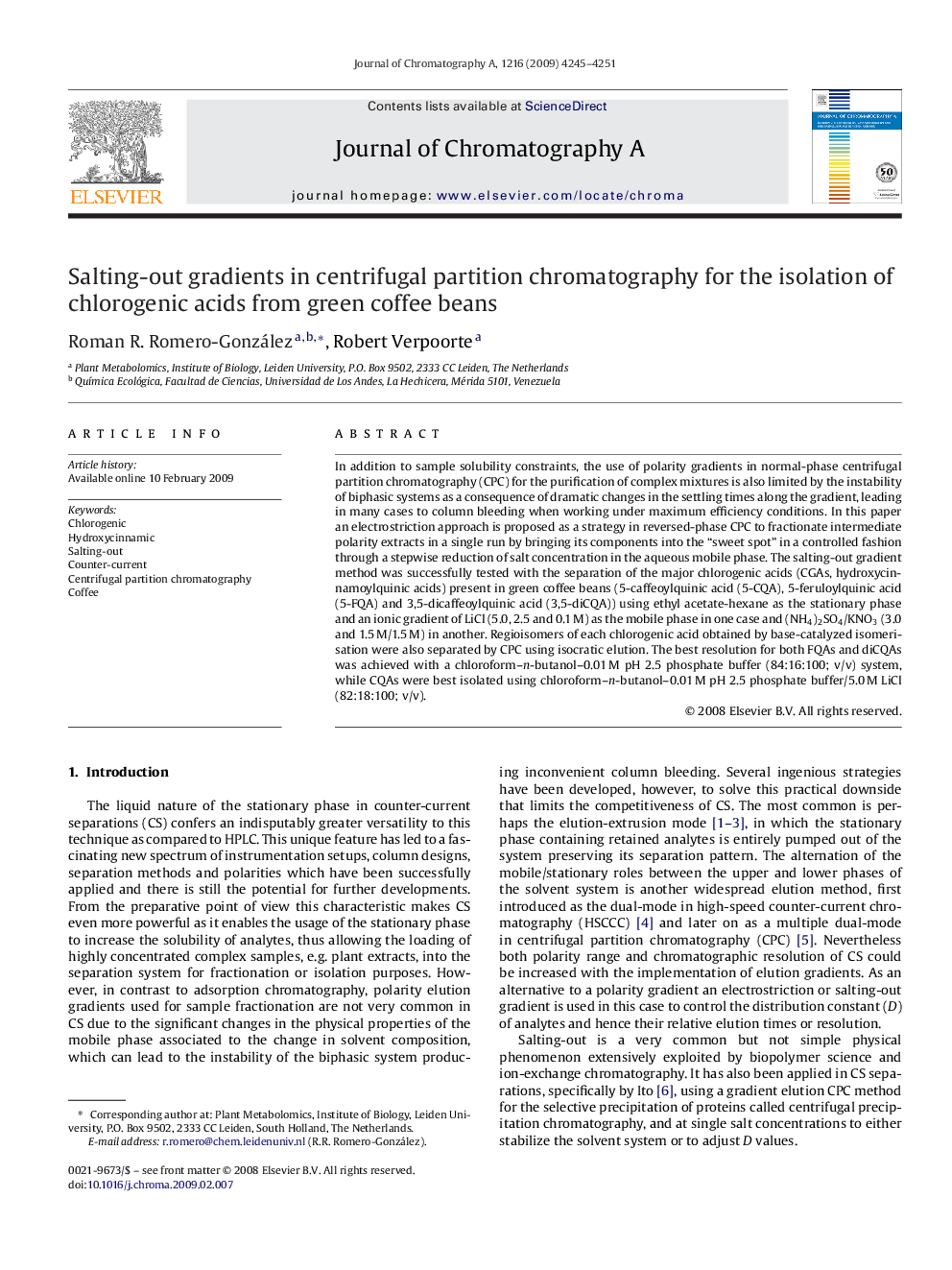| Article ID | Journal | Published Year | Pages | File Type |
|---|---|---|---|---|
| 1206482 | Journal of Chromatography A | 2009 | 7 Pages |
In addition to sample solubility constraints, the use of polarity gradients in normal-phase centrifugal partition chromatography (CPC) for the purification of complex mixtures is also limited by the instability of biphasic systems as a consequence of dramatic changes in the settling times along the gradient, leading in many cases to column bleeding when working under maximum efficiency conditions. In this paper an electrostriction approach is proposed as a strategy in reversed-phase CPC to fractionate intermediate polarity extracts in a single run by bringing its components into the “sweet spot” in a controlled fashion through a stepwise reduction of salt concentration in the aqueous mobile phase. The salting-out gradient method was successfully tested with the separation of the major chlorogenic acids (CGAs, hydroxycinnamoylquinic acids) present in green coffee beans (5-caffeoylquinic acid (5-CQA), 5-feruloylquinic acid (5-FQA) and 3,5-dicaffeoylquinic acid (3,5-diCQA)) using ethyl acetate-hexane as the stationary phase and an ionic gradient of LiCl (5.0, 2.5 and 0.1 M) as the mobile phase in one case and (NH4)2SO4/KNO3 (3.0 and 1.5 M/1.5 M) in another. Regioisomers of each chlorogenic acid obtained by base-catalyzed isomerisation were also separated by CPC using isocratic elution. The best resolution for both FQAs and diCQAs was achieved with a chloroform–n-butanol–0.01 M pH 2.5 phosphate buffer (84:16:100; v/v) system, while CQAs were best isolated using chloroform–n-butanol–0.01 M pH 2.5 phosphate buffer/5.0 M LiCl (82:18:100; v/v).
